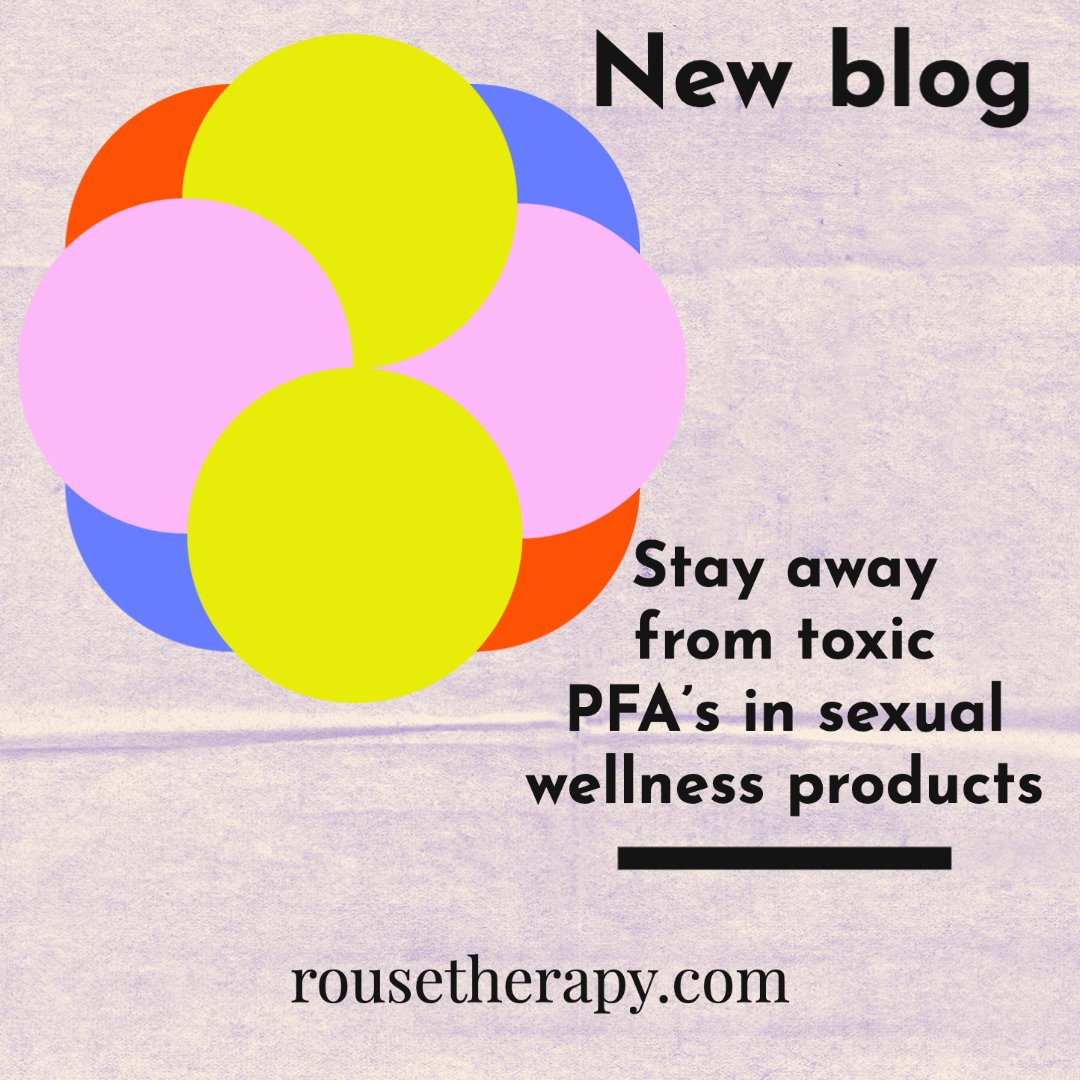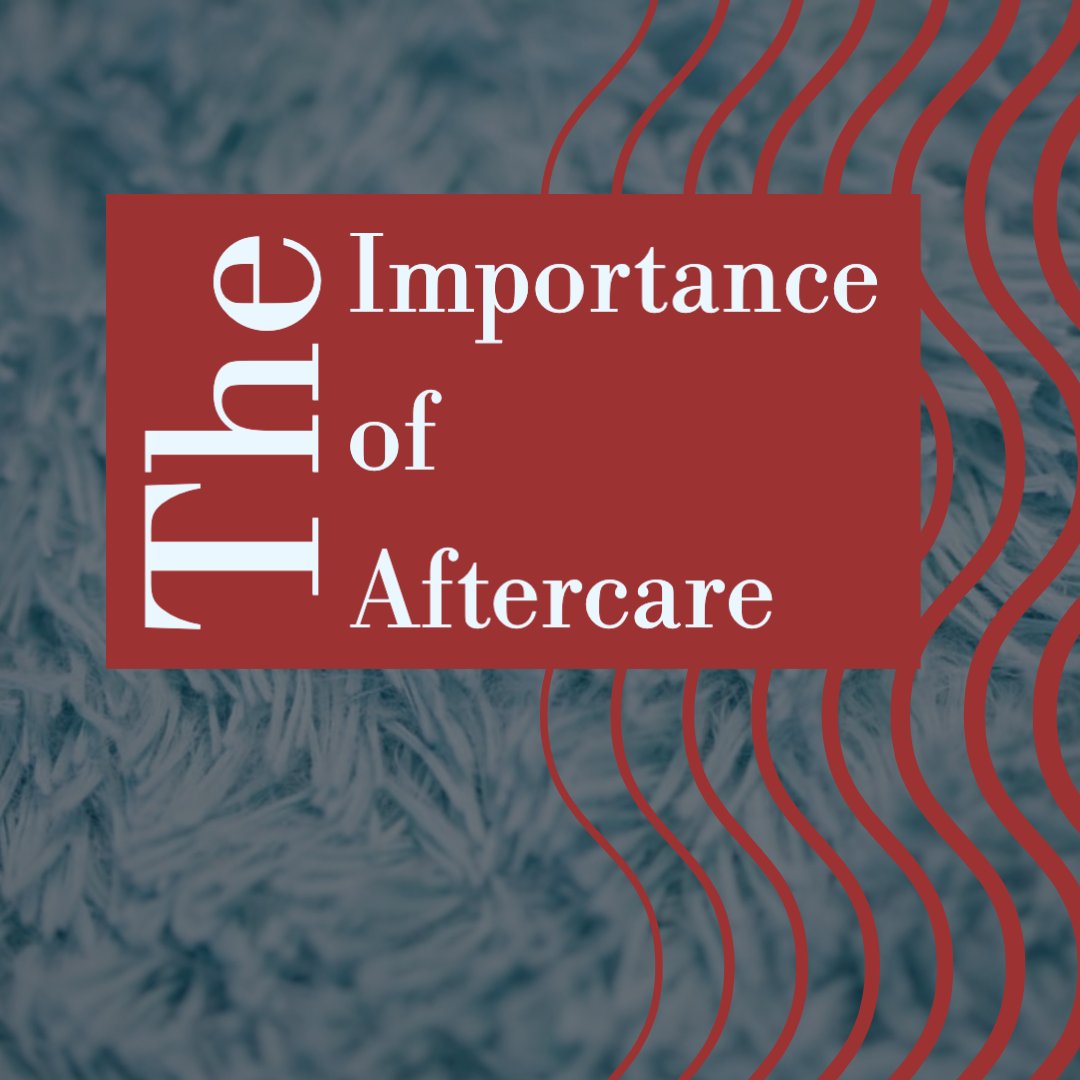
The Three Types of Orgasms Every Vulva-Owner Should Know

Should I See a Sex Therapist if I Have Sexual Trauma?
Sexual trauma can have a profound impact on an individual's life. It can lead to feelings of shame, guilt, and low self-esteem, as well as difficulty forming and maintaining healthy relationships. Sex therapists are trained professionals who specialize in helping individuals overcome sexual difficulties, including those related to sexual trauma.
Here are some ways that a sex therapist can help heal sexual trauma:
Creating a Safe Space: A sex therapist can create a safe, non-judgmental environment where an individual can share their experiences without fear of being shamed or blamed. This can help the individual feel heard, validated, and supported, which can be an important first step in the healing process.

Working with Interracial Couples: 5 Tips for Therapists
Couples therapy can be daunting for any therapist, but it is crucial to consider the unique needs of interracial couples. Couples in these relationships often have to face many challenges that are not present in same-race couple relationships. As a therapist, it is important to be aware of these issues and to create an environment where both partners feel comfortable talking about them. Here are five key points to remember when working with interracial couples.
Watch Out for Your Own Bias
Therapists must examine their own beliefs and assumptions about race and ethnicity before working with interracial couples. Suppose you find yourself making snap judgments or expecting certain behaviors from either partner based on race. In that case, it's time to do some self-reflection and seek out additional training in cultural humility. Your own biases may inadvertently lead you to make assumptions about the relationship dynamics or communication patterns that could be inaccurate or even harmful. Whenever possible, do your research, seek consultation, try to remain open-minded, and remember that each couple’s situation is unique.

Top Black Sexual Wellness Leaders You Should Follow
In recent years, the conversation around sexual wellness has become much more open, honest, and normalized. We owe that in no small part to the following incredible black leaders dedicated to making this complex topic more accessible. Here is a list of five influential sexual wellness leaders you should know about and what they have contributed to the field.
Marla Renee Stewart: Marla Renee Stewart advocates for sexual health and wellness. She is the founder of Velvet Lips, a sex-positive workshop facilitator and coach. Marla Renee also produces workshops that focus on consent and communication between couples. Her work has been featured in publications such as The Guardian and New York Magazine.
Over the last eight years, Marla Renee has co-led the Sex Down South Conference, which offers a sex-positive space for people from all walks of life to get together, explore, connect, and share knowledge and skills.

5 questions to ask before starting couples therapy
While each approach offers something different, they all have one common goal - helping couples build strong relationships.
Can I start if there’s a small issue in our relationship?
Couples therapy is a great way to start addressing problems before they become too severe and potentially damaging to the relationship. Through couples therapy, couples can develop better communication skills, stop fighting, and gain insight into the underlying issues behind their disagreements. With couples therapy, couples can work with a professional virtually or in-person to identify and address their problems in a safe space. Moreover, couples may be able to identify individual triggers that could cause further conflict and work together to develop strategies for working through them in a mutually beneficial way. So if couples are encountering small relationship problems, online couples therapy is an excellent way to resolve those issues before they get out of hand!

Steer Clear of Toxic PFAs in Your Reproductive and Sexual Wellness Products
The recent settlement from Thinx underwear regarding their use of toxic PFAs has been a major wake-up call for reproductive and sexual wellness products. We all want to ensure that the products we use are safe, but it can be difficult to determine which materials are safe and which should be avoided. In this blog, we’ll dive into what exactly PFAs are and why they should be avoided when shopping for reproductive and sexual wellness products.
What Are PFAs?
PFAs stands for “per-fluoroalkyl substances.” This family of chemicals includes PFOA (perfluorooctanoic acid) and PFOS (perfluorooctane sulfonate). These particular chemicals have been used in many different types of products, including food packaging materials, clothing, furniture, and even non-stick cookware. Unfortunately, they can also be found in certain reproductive and sexual wellness products and have been linked to health risks such as cancer and hormone disruption.

January is Cervical Cancer Awareness Month – Let’s Talk About HPV Vaccines
It’s a new year, and we celebrate January as cervical cancer awareness month. Cervical Cancer Awareness is incredibly needed when the preventative measure for this cancer is mired in moral panic and pearl-clutching behaviors.
So it’s time to talk (keep talking) about HPV vaccines, why they are important, and why there shouldn’t be any stigma around sexual pleasure. Let’s start by breaking down the basics of cervical cancer and how it can be prevented.
What is cervical cancer?
Cervical cancer occurs when abnormal cells grow uncontrollably on the cervix, which is the lower part of the uterus that connects to the vagina. This type of cancer is preventable and treatable if detected early enough.
Why get the HPV vaccine?
The human papillomavirus (HPV) is one of the most common sexually transmitted infections (STIs). If left untreated, HPV can cause several types of cancers in both men and women, including cervical cancer in women. The HPV vaccine helps protect against certain types of cervical cancer caused by the virus. It also helps protect against some other types of cancers such as anal, oropharyngeal (throat), penile, vaginal, and vulvar cancers in both men and women. There are three doses available for this vaccine, and it should be administered before anyone becomes sexually active or at least two weeks before their first sexual encounter. Furthermore, the vaccine and our understanding of HPV continue to develop. Even recently, WHO announced that studies have shown that even one dose of the vaccine can provide “comparable efficacy and protection” as would two doses.

How Can Pelvic Floor Physical Therapy Help Sexual Dysfunction?
Many people still do not know what pelvic floor physical therapy is, let alone that it can help with sexual dysfunction! If you feel you have hit a wall with pain with sex or decreased sexual appreciation, you may want to consider what pelvic floor physical therapy can do for you.
The first question you may ask is “what is the pelvic floor?”. The pelvic floor is essentially a sling of muscles at the base of your pelvis that plays a vital role in bowel, bladder, and sexual health. Whether you are penis-bodied or vulva-bodied, all bodies have this important group of muscles and all bodies can benefit from treatment of these muscles when symptoms present.
“Pelvic Floor Dysfunction” simply refers to the idea that the pelvic floor muscles may not be working to the best of their ability. For some folks, the issue may be that the muscles are being held too tensely, or that there may be a lack of coordination in both contracting and relaxing these muscles. It is important to work with a skilled pelvic floor physical therapist to have an individualized assessment in order to determine what specifically may be going on with your pelvic floor muscles.
It is important to acknowledge that the pelvic floor muscles play a key role in sexual arousal and orgasm, as well as penile rigidity. Issues in any of these aspects of sexual appreciation can be due to lack of coordination, lack of blood flow, and lack of elasticity or suppleness in the structures that support these functions. Healthy muscles are ones that can fully contract and relax, and this motor control can be improved with pelvic floor physical therapy.

2022 in Review
Happy New Year! Welcome to 2023! Our team at Rouse Relational Wellness wants to welcome you to the new year, and celebrate our achievements in 2022.
In the last year, our team has done some amazing things, to toot our own horn a bit 📯:
The Rouse team grew to six stellar staff therapists
Expanded to a beautiful four-office suite in the heart of the Castro
Held multiple free Ask a Sex Educator webinars to provide excellent sexual education resources to our community
Offered live workshops on topics related to sex and anxiety, sex and intimacy for survivors, and mindfulness for sex anxiety

When "Clingy" Becomes an Anxiety Disorder
There's nothing wrong with wanting to spend every waking moment with your significant other. In fact, for some people, it's a sign of how strong their connection is. But for others, it can signify something more serious: anxious attachment.
Anxious attachment is a form of attachment disorder characterized by anxiety and insecurity. People with anxious attachment often feel the need to be close to their partner and fear abandonment constantly. If you get clingy or panicky when your partner goes out without you, you might suffer from anxious attachment.

Navigating the Holidays When Family Relationships are Complicated
The holidays are coming up, and for some people that is wonderful news. The warm twinkle of lights around town, the vacation days, cultural or religious traditions and, time with family.
But for a lot of people the holidays can be daunting. During the time of year that prioritizes family, it can feel incredibly isolating when visiting relatives doesn’t feel safe or welcoming. Or it may be off the table entirely for one reason or another.
Whether you’re estranged from your family completely or have strained relations that make the holidays difficult, here are some ways to cope through the holidays:

The Importance of Aftercare
We've all heard of the importance of foreplay, but what about afterplay? Aftercare is just as important, if not more so, than foreplay regarding kinky sex. Here's why:
Sexual Aftercare Helps Establish Safety and Connection
One of the most essential aspects of kinky sex is establishing and maintaining a sense of safety and connection with your partner. Aftercare helps to set this safety by creating a space for you and your partner to debrief and check in with each other after your scene. This is a time to discuss what went well and what didn't and to express any emotional reaction you might be having. Sexual aftercare can be time to reflect on the toys or materials that should be paused for a while or which ones to introduce. By connecting with each other after your scene, you can help ensure that everyone feels safe and secure.

Why is sexual wellness important?

Our New Clinic
Locally owned sex and relationship therapy center, Rouse Relational Wellness, focuses on trauma-informed care for queer, BIPOC, poly and kinky folks who are grappling with anxiety by offering online and in person therapeutic and educational resources for the public.
SAN FRANCISCO, November 1, 2022—Rouse Relational Wellness, locally owned sex and relationship therapy center, announced today the expansion of their mental health practice to 4124 18th Street, San Francisco. This move and expansion gives Rouse Relational Wellness the opportunity to provide sex positive, trauma informed mental healthcare to the Castro community and all of California.

Genderf*ck your Halloween
Genderf*ck this Halloween
For many, Halloween can be a time to have some fun and gather with friends. But it can also be a time to explore our deepest desires, fantasies, and gender expressions. If you're feeling curious, treat this holiday as an opportunity to respectfully find expressions that work for you. As you try on (literally or metaphorically) new expressions, be genuine with this experiment. Treat it as a mindful moment to sink in and see what this really feels like. What areas of this experience do you want to continue post-halloween?

Navigating relationship issues during cancer treatment
For Breast Cancer Awareness Month we wanted to share some thoughts on the impact of cancer and cancer treatment on sex and relationships. Cancer treatment can be a scary time for any couple, but there are some common relationship concerns that often come up during this time. This blog post will discuss those concerns and offer tips for how to deal with them. Whether you're just starting cancer treatment or have been through it already, these tips can help you maintain your relationship with your partner.

Honoring Marsha P Johnson
Marsha P Johnson was a gay liberation activist known as an outspoken advocate for gay rights, Marsha was one of the prominent figures in the Stonewall uprising in 1969. Her work towards equality and acceptance for the LGBTQ+ community has inspired people all over the world and helped to shape the conversation around gay rights. In this blog post, we'll take a look at Marsha's life and work as an advocate, as well as how she has inspired others to fight for equal rights.

Communicating Kink
When it comes to sex, kink can open up a whole new world of pleasure and exploration for couples. Kink can be a great way to increase communication and intimacy with your partner. It can also be a great way to learn more about your own needs and desires.
Kink can range from playful spanking to more involved bondage and role-playing. No matter what level of kink you are interested in exploring, there are some great benefits to be had. Here are just a few of the benefits that kink can offer couples.
1. Communication Improvement
One of the biggest benefits of kink is the improvement in communication that it can bring about. When you engage in kink activities with your partner, you will quickly learn the importance of communication. Checking in with each other during and after play is essential for making sure everyone is comfortable and enjoying themselves. This improved communication can carry over into other areas of your relationship.
2. Increase Intimacy
Another benefit of kink is that it can help to increase intimacy between partners. When you share something new and intimate with your partner, it can help to deepen the bond between you. Kink play can also help to build trust between partners.

Tell us about masculinity, Esther
Masculinity. What does it mean to you? To society? And, most importantly, what does it mean to men themselves? These are the questions therapist Esther Perel waxes on in her newest video on masculinity. As you may know, Esther Perel has done wonderful work for relationships and even families. Her discussion on masculinity of course falls in line with her poignant thinking about relationships.
Personally, I love how she talks about how masculinity is seen as “an imperative, a duty, a performance, a ‘prove it’.” I have witnessed many men and AMAB folks talk with certainty and absolutism that masculinity is way of being that has been defined by others, and they’re trying to find a way to fit in or make it work for them.
By naming the reality that today, masculinity is “hard to acquire, and easy to lose”, Perel pokes at the heightened and unrealistic expectations faced by men to follow a path only Sysiphus would love. If you work hard, isolate, beef up, and push away you’ve successfully earned your man card. Use the word “cute” or stand incorrectly, your man card is revoked. What is this bullshit?
What expectations of masculinity are you ready to give up in favor of your mental health?
What aspects of masculinity do you want to keep in favor of your mental health?
Let’s take a moment and be soothed by Esther’s thoughts.

Dore Alley, and the benefits of kink
The annual ‘Up Your Alley Fair,’ or to local’s ‘Dore Alley’ is upon us. For some, the weekend is marked by individuals wearing leather attire, puppy masks, bound by rope or even perhaps nothing at all. However, at a much closer look, Dore is a celebration of leather/kink/fetish identities that are commonly misunderstood and often deemed ‘perverse’ in the dominant society.
Kink is regarded as an umbrella term to address the wide range of sexual fantasies, interests, and identities that are carried out with consensually agreed upon behaviors. It is common for folks to use kink in relationship dynamic(s) where erotization derives from power dynamics and/or role-playing erotic scenarios. For example, age-play between a “daddy–son” dynamic or submission-play between “handler and their pup” are common scenes. Engaging in kink is a vulnerable process where demonstrating traits of mutual agreement, openness, authenticity, and negotiation with play partner(s) may assist in making the experience(s) more enjoyable.
Recently, reach conducted by The Alternative Sexualities Health Research Alliance (TASHRA)
has shown the positive impact that participating in kink has on mental health- helping individuals cultivate better senses of self-acceptance, positive relationships, autonomy, and personal growth.
If you are curious about exploring your kinks and/or your ‘Sub’ or ‘‘Dom’ side, TASHRA, makes the following recommendations around sexual play with potential partners.
• Be intentional around cultivating positive and nourishing experiences
(e.g., determine scene play and number of partners beforehand)
• Listen to and respect each other’s boundaries, especially sub’s
(never undermine one another)
• Allow negative feelings to surface and be worked through in the dynamic
(e.g. Unhappiness, jealousy, guilt, etc.).
• Use a ‘safeword’
• Be silly, have fun with it.
Exploring your kinks/fetishes/sexual desires is essential to one’s mental and sexual well-being. Reach out to a sex therapist to help you gain more clarity around your intentions, expectations, and boundaries. Relationship therapy can also help partners have a safe enough space to work through potential concerns or anxieties around introducing kink or understanding any desire discrepancies in the relationship.
Colin Fyfe, AMFT is a sex and relationship therapist in San Francisco, California. He specializes in working with the LGBTQIA community, men's mental health, and substance use issues. Colin also offers online therapy.